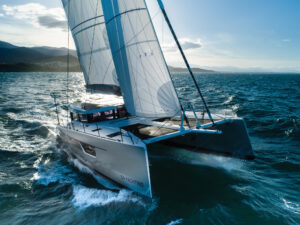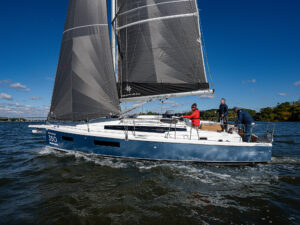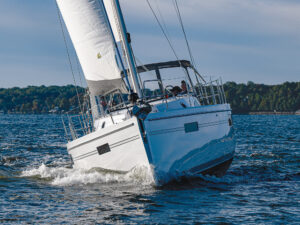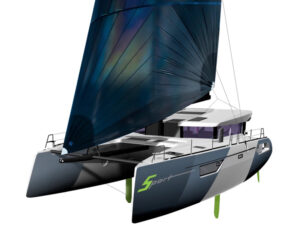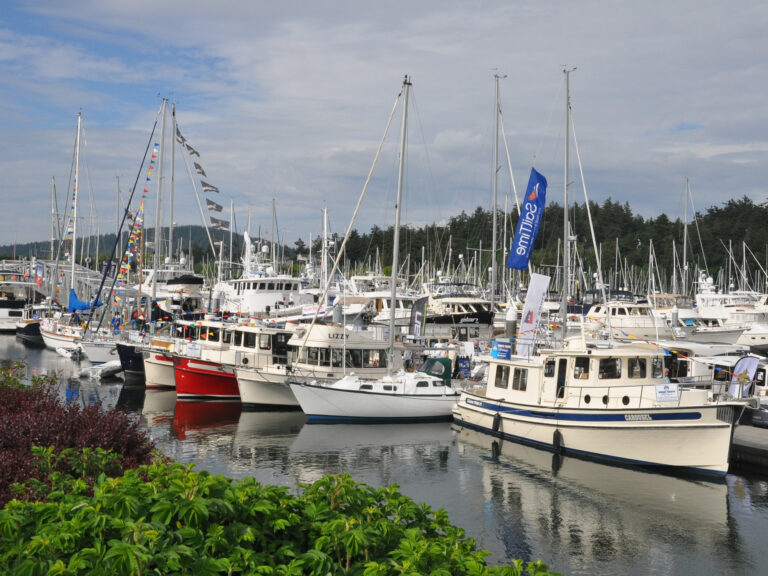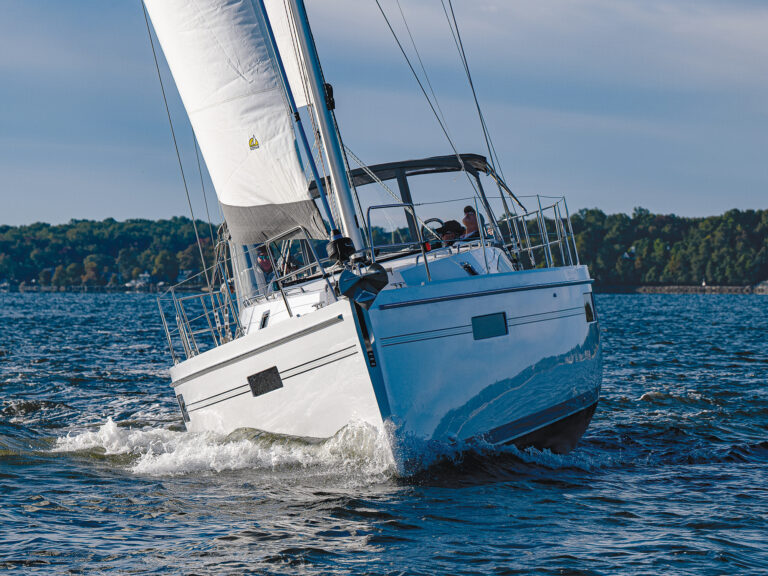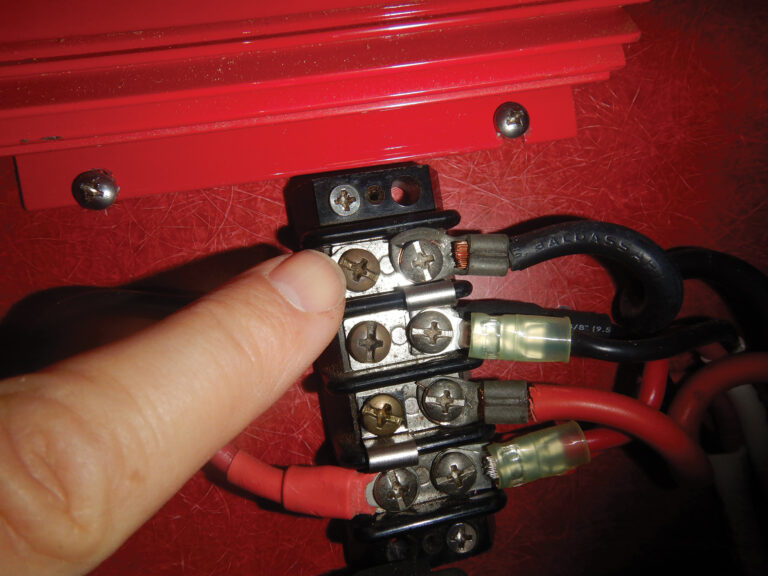Renewing a popular model is always a daunting task, especially when it’s been a bestseller for almost a decade, as was the case with the Oceanis 38.1. The challenge laid before the designers, Marc Lombard and Nauta Design, was clear: enhance volume and boost performance while preserving the ease of use that has defined the Oceanis line since its inception in 1986.
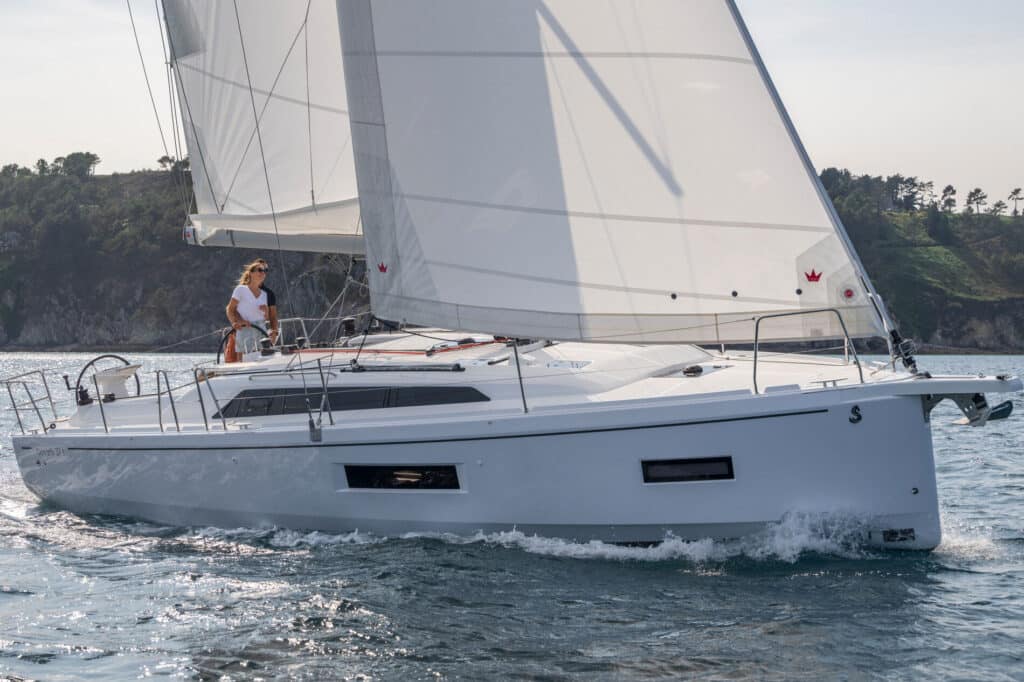
Beyond the elegant profile, the 37.1’s interior space in the salon is nearly as generous as that of a 40-foot vessel. The hull features a distinctive flare with a rib beneath, not only maintaining graceful lines below the waterline but also delivering increased power and stability. This design tweak also enhances the hull’s structural integrity, adeptly managing weight distribution and creating more interior space in the bow area.
Stepping inside the salon, we find a clever layout, slightly offset to port. It offers tremendous volume, complete with a cozy sofa and a spacious dining table accommodating six. This configuration seamlessly faces the galley, allowing the crew to go about their tasks without disrupting the dining area. Meanwhile, the passageway to the forward cabin is set off, completely obtrusive to guests. Generously sized portholes integrated into the hull side of the forward cabin provides excellent visibility and natural light. In the two-bathroom version, the bed is positioned against the starboard hull. The aft accommodations are equally spacious. In the standard version, there’s a king-size double bed and a substantial sail locker aft of the bathroom, accessible from both inside and out. Even in the three-cabin version, the bedding remains well-proportioned.
The sense of interior volume extends to the expansive and remarkably open cockpit, stretching over three meters in length. The outdoor living areas are designed to create a sense of openness, with a deliberate lack of backstays—a configuration previously employed on the Oceanis 30.1 and 34.1 models. When at anchor, access to the swim platform is easy. Simply lift the helm seats, and a broad walkway leads to the lowered platform, ensuring safety and making it a perfect spot for swimming and watching the world go by.
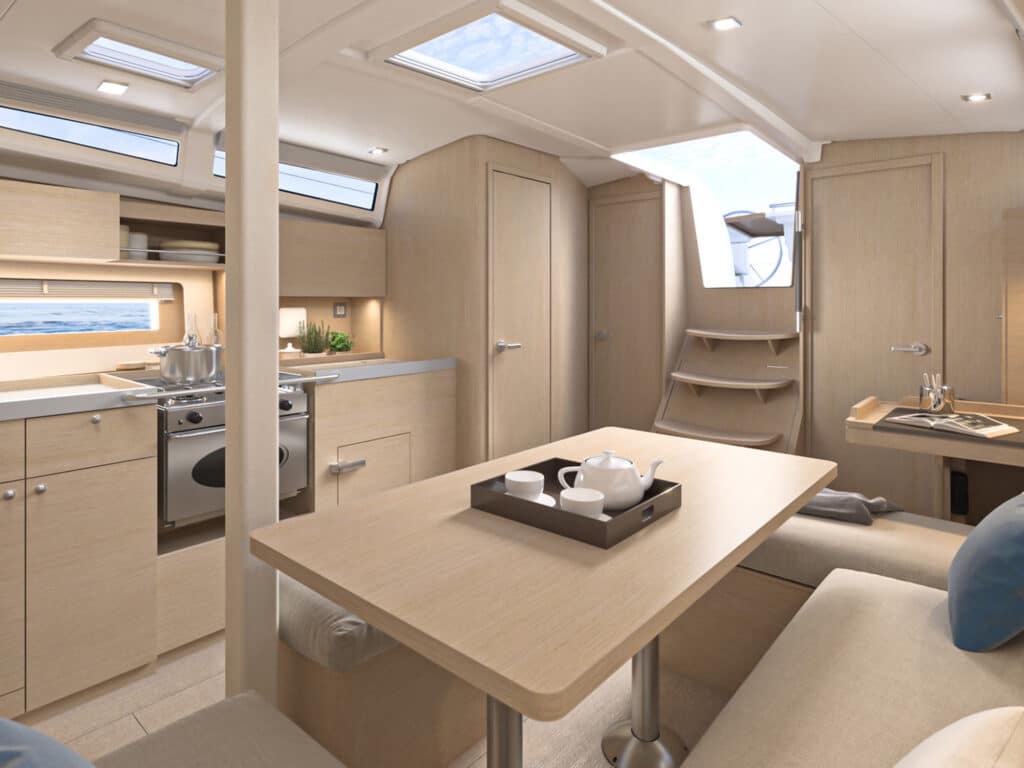
The large double spreaders (optionally equipped with an in-mast furling system) suggest impressive sailing performance for the Oceanis 37.1. In the standard version with a self-tacking jib, the focus is on making sailing more effortless, while those who relish spirited sailing will adore the First Line version with its square-top mainsail and Genoa (providing an additional 12 percent sail area). To facilitate easy handling by a smaller crew, all the rigging has been directed towards the two aft winches, with only the halyards remaining grouped around the coachroof. All the essential instruments, including a 7-inch plotter, are conveniently located on the starboard helm console.
In a nod to sustainability, the Oceanis 37.1 incorporates Iroko, an African wood that can substitute for teak, for its cockpit decking. This innovative approach, known as Iro-Deck, utilizes laminated layers to create each strip of plywood decking. This method ensures uniform coloration, excellent durability, and eliminates the risk of cracks, a common issue with solid wood decks.
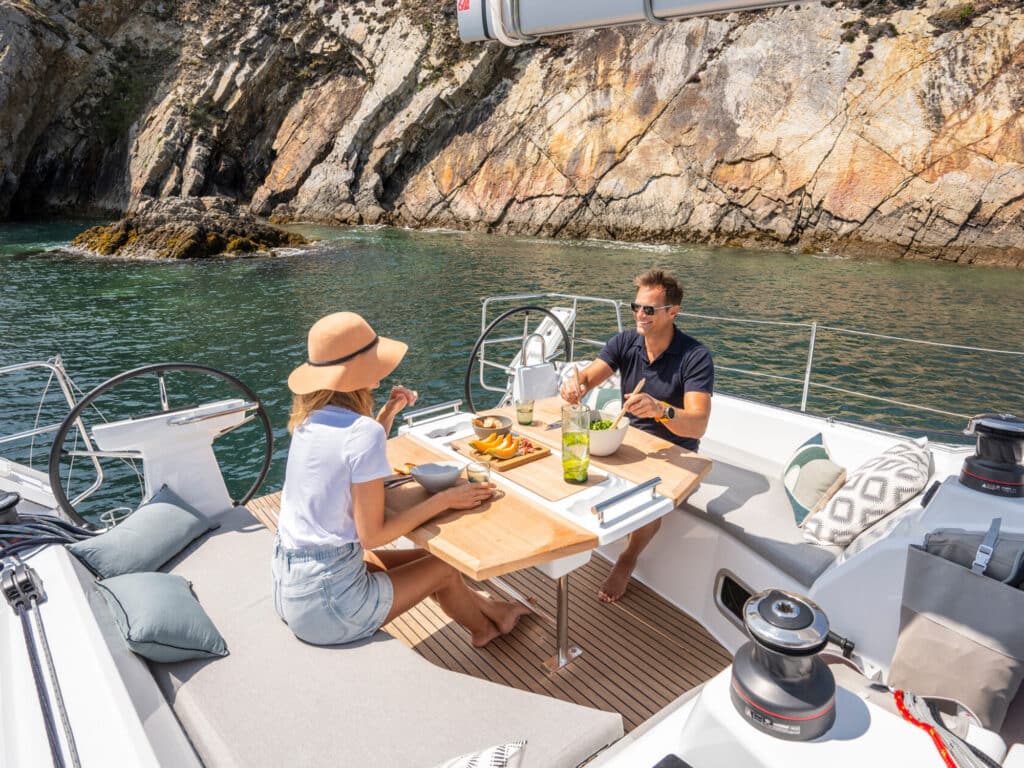
Adapting to contemporary environmental challenges, the design team also addressed the 37.1’s power source. With a growing interest in carbon-free sailing for inland waterway cruising, this model offers an electric engine option featuring a 12 kW pod and 10 kilowatt-hour batteries. This setup provides a motoring range of 2 hours at 5 knots between charges, all while emitting no carbon and maintaining an eco-friendly silence.
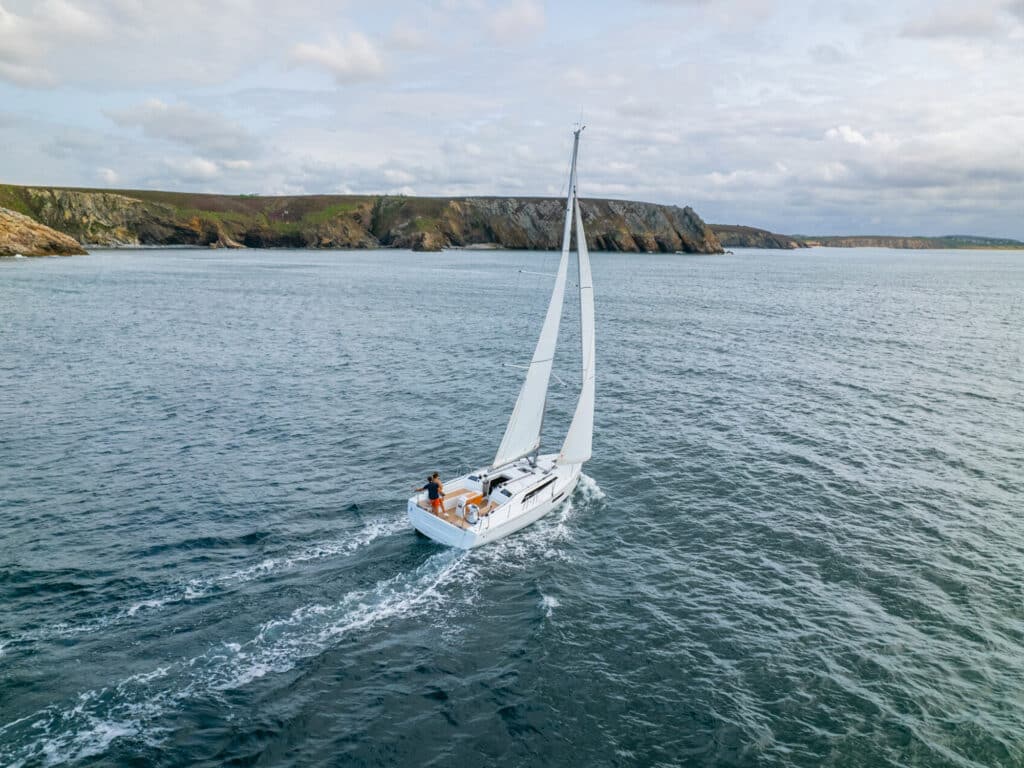
Beneteau Oceanis 37.1 Specifications
| LOA | 39’2” |
| LWL | 35’6” |
| Beam | 12’10” |
| Draft | 6’11” (deep); 5’4” (shallow) |
| Displacement | 15,125 lb. (light) |
| Sail Area | 646 sq. ft. (standard main and self-tacking jib); 232 sq. ft. (furling genoa), 570 sq. ft. (Code 0) |
| Website | beneteau.com |

